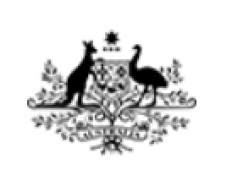Share
Print

The Australian Government has maintained a large and highly effective development assistance program in Zimbabwe which has had positive and tangible impacts on substantial numbers of people. Through a range of partners, including multilateral agencies, other donors and NGOs, the program has delivered almost AU$280 million of assistance between 2008 and 2014, carefully targeted to address some of the key social and economic challenges facing the country:
In partnership with UNICEF, Germany’s GIZ and NGOs it has supported water, sanitation and hygiene (WASH) activities in 20 small and medium-sized towns, through rehabilitation of infrastructure, improved billing and revenue collection services, and increased efficiency of local council operations.
It has invested in ZimFund, a pooled financing mechanism managed by the African Development Bank. ZimFund focuses on infrastructure investments in water and sanitation, and in the energy sector which are critical to the economic recovery of Zimbabwe.
It has played a central role in the Zimbabwe window of the African Enterprise Challenge Fund (AECF), a competitive, private sector-focused grants and loans activity. AECF is designed to help revive the Zimbabwean rural economy, particularly agribusinesses and rural finance sector, through development of innovative enterprises that meet the needs of smallholder farmers and the rural poor.
It has also helped efforts to build a more peaceful and democratic political environment in Zimbabwe, through activities such as supporting the development of a new constitution.
The Australian NGO Cooperation Program (ANCP) supports Australian NGO activities which directly and tangibly alleviate poverty in developing countries through community-led development projects. In Zimbabwe, Zambia, Malawi and DRC, the ANCP delivers projects across a range of sectors including education, health, water supply and sanitation, civil society, peacebuilding, food security, facilitating access to markets, improving livelihoods for women, and working to strengthen links between communities, government and the private sector.
